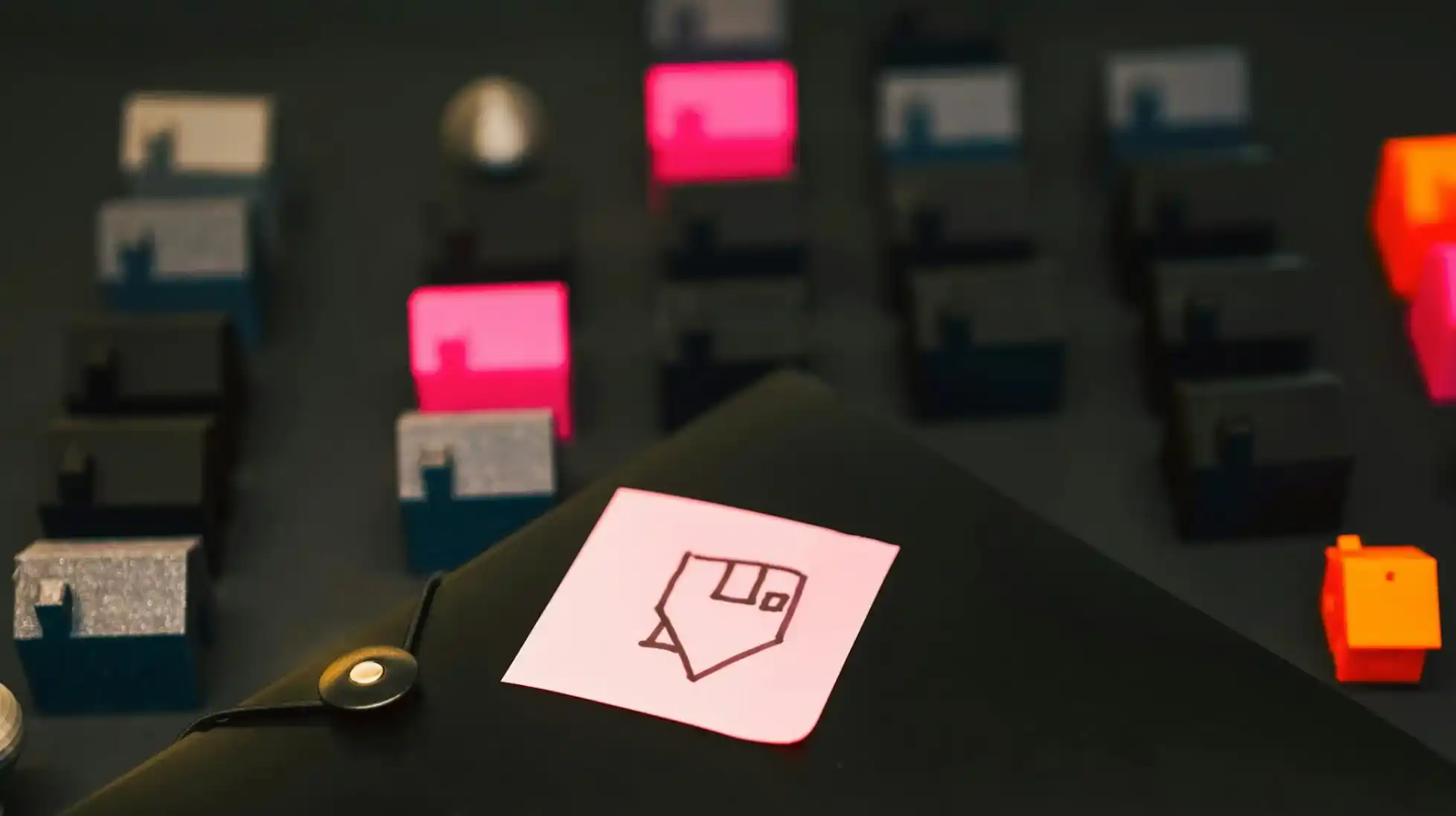Biggest German Brands and Companies in 2025
Updated on
Published on

Germany stands as one of Europe’s economic powerhouses, home to iconic German brands that drive innovation in technology, finance, automotive, and more. Below, you’ll find a ranking of the top 10 companies in Germany based on market capitalization in 2025, presented from 10 to 1. Alongside their market values, we’ll explore each firm’s background, primary operations, and some noteworthy points that highlight their contributions to Germany’s most successful companies list.
10. Volkswagen AG
- Market Cap: $48.35 Billion
Volkswagen AG is a major automotive group headquartered in Wolfsburg, Germany. Known for engineering and manufacturing passenger cars, commercial vehicles, motorcycles, and engines, it encompasses an extensive portfolio catering to a global clientele. As a stalwart of German automotive brands, Volkswagen has remained a cornerstone of the country’s economy and automotive heritage.

Founded in 1937, Volkswagen began as part of a government initiative to create affordable cars for the public (“People’s Car”). Over decades, it evolved into a multinational conglomerate with multiple divisions and acquisitions, expanding into luxury, sports, and heavy-duty vehicle segments. Despite challenges such as emissions controversies, VW has pivoted toward electric mobility and sustainability to meet evolving market demands.
- Owns core brands like Audi, Porsche, Bentley, and Lamborghini under the Volkswagen Group umbrella.
- Aggressively invests in electric vehicle (EV) research and production, competing with global EV leaders.
- Maintains robust manufacturing sites across Germany and worldwide, supporting thousands of jobs.
9. BMW
- Market Cap: $49.27 Billion
BMW (Bayerische Motoren Werke) is a renowned German luxury brand celebrated for crafting premium cars and motorcycles recognized for performance, design, and innovative engineering. Often synonymous with driving pleasure, BMW has carved out a loyal global following, propelled by a reputation for quality and advanced technology.

Established in 1916 as a manufacturer of aircraft engines, BMW transitioned post–World War I into producing motorcycles, and eventually automobiles. Its focus on sleek design and automotive performance brought global success, from the sporty 3 Series sedans to the high-end 7 Series. Today, BMW continues to blend tradition with futuristic engineering, emphasizing electrified vehicle lines and driver-assist technologies.
- Oversees MINI (compact luxury vehicles) and Rolls-Royce Motor Cars (ultra-luxury vehicles).
- Pursuing sustainability goals with a growing range of electric and hybrid models.
- Known for pioneering “Ultimate Driving Machine” branding, reflecting performance-oriented product development.
8. Mercedes-Benz
- Market Cap: $54.68 Billion
Mercedes-Benz produces German luxury cars, trucks, and vans, long associated with elegance, comfort, and progressive technology. Renowned for both internal-combustion engine craftsmanship and cutting-edge electric powertrains, the brand caters to the high-end market seeking robust performance and timeless design.

Tracing its lineage to Karl Benz’s invention of the automobile, Mercedes-Benz emerged in 1926 from the merger of Benz & Cie. and Daimler-Motoren-Gesellschaft. Over nearly a century, it has refined automotive engineering, pioneering safety features (like ABS and airbags) and high-performance innovations (through AMG). Recently, Mercedes intensifies its e-mobility push, unveiling the EQ line of electric vehicles aimed at reducing emissions and retaining the company’s global prestige.
- AMG sub-brand focuses on high-performance, motorsport-inspired models.
- Maintains a robust motorsport tradition via Formula 1, reinforcing its engineering leadership.
- Known for advanced driver-assistance systems and lavish interior technologies.
7. Siemens Healthineers
- Market Cap: $60.77 Billion
As an offshoot of the Siemens conglomerate, Siemens Healthineers specializes in medical devices, diagnostics equipment, and digital health solutions. A global leader in imaging technologies, it aids healthcare providers in delivering precision medicine and more efficient patient care.

With roots in Siemens’s healthcare division, Siemens Healthineers became a separate entity to sharpen its focus on healthcare innovation. It provides advanced scanning solutions, laboratory diagnostics, and specialized treatment equipment worldwide. Building on Siemens’s lengthy industrial heritage, the subsidiary leverages engineering know-how to drive breakthroughs in disease detection and therapy.
- Acquired Varian Medical Systems, expanding its reach in cancer treatment.
- Emphasizes AI-driven diagnostics and telemedicine solutions.
- Contributes significantly to Germany’s reputation as a front-runner in medical technology.
6. Merck KGaA
- Market Cap: $63.35 Billion
Merck KGaA stands as one of the oldest pharmaceutical and chemical companies globally. Operating in healthcare, life sciences, and performance materials, Merck develops medicines, lab tools, and high-tech materials vital to industries such as electronics and biotechnology.

Founded in 1668, Merck began as a small pharmacy in Darmstadt, Germany. Over centuries, it grew into a robust multinational entity, pioneering in areas like liquid crystals (for screens) and immuno-oncology treatments. Despite partial name overlaps with the U.S.-based Merck & Co., it remains a separate, historically rich organization.
- Operates MilliporeSigma (in the U.S.), offering lab and biotech solutions.
- Focuses on cutting-edge treatments for multiple sclerosis and cancer.
- Known for significant R&D investment, facilitating Germany’s strong life sciences sector.
5. Munich RE
- Market Cap: $69.38 Billion
Munich RE is a global reinsurance giant, providing risk management and insurance solutions to both businesses and primary insurers. Through analytics and wide coverage offerings, it supports clients in coping with large-scale disasters and complex liabilities.

Established in 1880, Munich RE (officially Münchener Rückversicherungs-Gesellschaft) has been instrumental in shaping modern reinsurance practices. Over decades, it expanded globally, providing coverage in sectors like aviation, marine, property, casualty, and beyond, ensuring industries can recover from catastrophic events.
- Owns the ERGO Group for primary insurance services.
- Emphasizes climate change risk assessment, often leading research on environmental impacts on insurance.
- Plays a pivotal role in stabilizing economies by absorbing large-scale risks.
4. Allianz SE
- Market Cap: $121.72 Billion
Allianz is a prominent provider of insurance and asset management services, supporting millions of clients worldwide. From personal life insurance to corporate risk coverage, the company stands as a key protector of financial well-being across various markets.

Founded in 1890 in Berlin, Allianz expanded through acquisitions and strategic alliances, becoming a major player in life insurance, property-casualty coverage, and investment products. Rooted in consumer trust, Allianz builds stable financial ecosystems, making it one of Germany’s most successful companies in the financial sector.
- Subsidiary PIMCO is a major asset management firm with extensive global reach.
- Known for swift digitalization, offering online platforms for claims, consultations, and policy adjustments.
- Expands in emerging markets, fueling stable international growth.
3. Deutsche Telekom
- Market Cap: $155.55 Billion
Deutsche Telekom ranks among the world’s largest telecommunications providers, offering mobile, broadband, and IT solutions. Renowned for T-Mobile operations in multiple countries, it connects households and businesses through next-generation networking technologies.

Originating from the privatization of Germany’s state-run telecommunication services in 1995, Deutsche Telekom branched into various markets, spanning Eastern Europe and North America. Known for extensive infrastructure projects, it invests continuously in 5G, fiber optics, and emerging digital services, fortifying Germany’s digital backbone.
- T-Mobile U.S. is a major growth driver, especially after its Sprint merger.
- Deutsche Funkturm develops telecom towers and antenna infrastructure.
- Emphasizes data security and stable connectivity amid rising digital demands.
2. Siemens
- Market Cap: $162.15 Billion
Siemens is a multinational conglomerate active in industrial automation, mobility solutions, energy systems, and digital infrastructure. From manufacturing robots to large-scale infrastructure projects, the company’s technology shapes modern industries and city life worldwide.

Founded in 1847, Siemens contributed to technological milestones like the first electric railway and advanced medical imaging. Today, it leads digitalization and sustainability efforts, using AI and data analytics to improve manufacturing, transport, and energy efficiency. This heritage cements Siemens’s status as a flagship for German brand success stories in industrial engineering.
- Split off divisions like Siemens Energy and Siemens Healthineers to focus on specialized markets.
- Heavily involved in “Industry 4.0” solutions, advocating connected factories and smart city projects.
- Actively invests in renewable power solutions and decarbonization strategies.
1. SAP
- Market Cap: $308.06 Billion
SAP (Systems, Applications, and Products in Data Processing) is a global leader in enterprise software solutions, notably its ERP systems that manage complex business processes. It caters to organizations of every scale, helping them streamline operations, financials, supply chains, and more.

Founded in 1972 by former IBM engineers, SAP became an iconic German brand in enterprise technology, supporting thousands of companies worldwide. Its software portfolio includes data analytics, cloud platforms, and customer experience modules. Through continuous innovation, SAP extends deep into industries from retail to finance, championing digital transformation across global markets.
- Owns subsidiaries such as Concur (expense management), Qualtrics (experience management), and SuccessFactors (HR solutions).
- Established itself as Germany’s largest tech company, playing a central role in the country’s push for advanced digital infrastructure.
- Emphasizes sustainability, offering software solutions that assist corporate environmental initiatives.
Honourable Mentions
Beyond this top 10 list of leading German companies 2025, several additional brands continue to shape Germany’s global economic landscape. Deutsche Post (market cap $48.12 billion) leads in logistics and courier services worldwide, while Bayer AG ($47.55 billion) remains a crucial pharmaceutical and life sciences innovator. Zalando ($45.92 billion) spearheads Europe’s e-commerce scene, revolutionizing fashion retail. Adidas ($43.78 billion) stands as a revered German luxury and sportswear label admired by athletes and fashion enthusiasts alike. Lastly, Infineon Technologies ($41.65 billion) anchors Germany’s semiconductor ambitions, ensuring stable chip supplies for automotive, industrial, and consumer electronics sectors.









